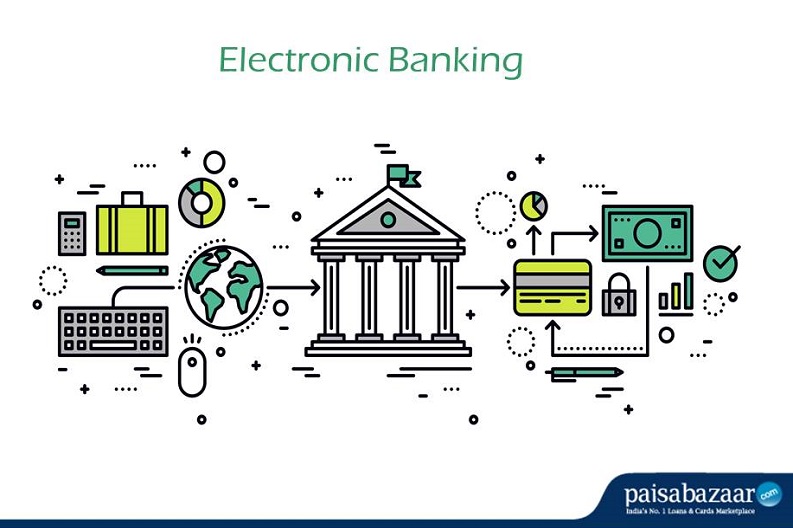The term online banking is basically what is called internet banking, e-banking or virtual banking. A customer uses an electronic medium to visit the website of a banking institution for financial transactions. Both, the medium and the financial service provider together form the term Electronic Banking.

A Good Credit Score can help in getting Loan Approvals Easily Check Now
Electronic banking services include:
- Online banking service to make the transaction process easy and safe.
- ATM and debit card services to provide instant cash to the customers.
- Phone banking service to benefit the customers by saving their time.
- SMS banking to provide alerts and information to the customers.
- Mobile banking to provide ease to the customer for making transactions using mobile phones.
- Fund transfer services through various channels.
- Point of sales banking.
The electronic medium has always provided the innovative base to the banking institutions in their progressive journey of providing better, safe, and easy services to the customers. The earliest mode of transactions, the cheques, were first introduced in Indian banking system by Bengal Bank in 1784. Then came ATMs in 1987. HSBC took the initiative of introducing ATM in India. In India, ICICI introduced internet banking facility.
The extensively used Electronic Banking service among customers in India is ATM. Today ATM service is not confined to withdraw cash only as it was in the beginning. Customers use this facility for various other purposes including
- To enquire about account balance
- To get bank statement of a limited period of time
- Customers can use ATMs for changing PIN.
- Customers can also use ATMs to deposit Cash
- Customers can use ATMs to deposit cheques
- Customers can use ATMs to transfer amount to other bank accounts
- Customers can make Credit Card Payments
Development of Electronic Banking has been expedited by initiatives from Indian Government and the RBI (Reserve Bank of India). The Indian Central Government has enacted an IT ACT concerning development, legalities, and other issues of e-banking. This IT Act, 2000 is responsible for recognizing whether an electronic transaction is legal or not. The other platforms of electronic commerce also stand within the legal periphery of the IT ACT, 2000.
Advantages of e-banking are numerous. It provides ease and convenience to the customers in operating an account. The customers can conduct transactions of different types using platforms like bank website, online applications, e-commerce portals, etc.
Benefits for Banks:
- It saves time, manpower, and resources of the banks.
- The banking has become cheaper using this technology.
- Efficiency of banks has
- The reach of banks is wider than earlier.
Benefits for Customers:
- Customers can manage almost every type of transactions using e-banking.
- Bill payments, sale-purchase, operating Demat Accounts, money transfer, and a number of convenient services provided by the banks are now can be operated through one channel i.e. Electronic Banking.



